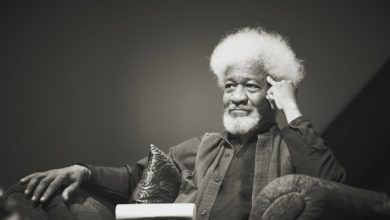Legal Insight: The Constitutionality of President Tinubu’s Emergency Rule in Rivers State
Interview by: May Mens

An Exclusive Interview with Barrister Chinedu Okeke
Legal Africa sat down with Barrister Chinedu Okeke, a constitutional lawyer and human rights advocate in Nigeria, to discuss the legal implications of President Bola Tinubu’s declaration of emergency rule in Rivers State, which led to the suspension of the governor and lawmakers.
Legal Africa (LA): Barrister Okeke, President Tinubu recently declared a state of emergency in Rivers State, suspending Governor Siminalayi Fubara and lawmakers. From a legal standpoint, is this action constitutional?
Barrister Chinedu Okeke (CO): The 1999 Nigerian Constitution (as amended) does empower the President to declare a state of emergency under Section 305. However, the removal or suspension of elected officials is not expressly permitted under that section. The President can take over certain functions to restore order, but it does not give him the authority to dissolve a democratic government. This is a constitutional overreach.
LA: If the Constitution allows emergency declarations, under what conditions can they be legally justified?
CO: Section 305(3) of the Constitution lists conditions for declaring a state of emergency, such as:
- War or external aggression,
- A breakdown of law and order beyond the capacity of local authorities,
- Natural disasters or public health crises,
- Any situation that threatens Nigeria’s sovereignty.
The political crisis in Rivers State is not war or an uncontrollable security breakdown. While there are allegations of pipeline vandalism and political instability, these do not rise to the level that justifies an emergency rule strong enough to override elected state officials.
LA: What are the implications of removing a sitting governor under emergency powers?
CO: This is the most controversial part of the declaration. The Constitution clearly states that governors can only be removed through impeachment by the state legislature or by a court ruling on election disputes.
By removing the governor through an emergency order, the President has set a dangerous precedent. It means future presidents could use emergency powers to target opposition-led states or interfere in regional governance.
LA: The Nigerian Bar Association (NBA) has criticized this decision. What legal challenges could arise?
CO: There are three possible legal challenges:
- Supreme Court Challenge: The Rivers State Government or concerned citizens could file a lawsuit at the Supreme Court, arguing that Tinubu’s action violates the separation of powers and state autonomy.
- Legislative Pushback: The National Assembly must ratify a state of emergency within two days under Section 305. If they refuse to approve it, the order could be overturned.
- ECOWAS and International Human Rights Appeals: If seen as an abuse of power, legal groups may seek regional intervention, arguing that the move violates Nigeria’s commitment to democratic governance.
LA: What does history tell us about past emergency declarations in Nigeria?
CO: Nigeria has had states of emergency before, but none have gone as far as suspending elected officials.
- In 2004, President Obasanjo declared an emergency in Plateau State but appointed an interim governor.
- In 2013, President Goodluck Jonathan declared emergencies in Borno, Yobe, and Adamawa States due to Boko Haram attacks, but the governors remained in office.
What Tinubu has done is unprecedented and extreme, making it a test case for Nigeria’s democracy.
DON’T MISS THIS : LL.M. Degrees: Do Law Firms Really Care?
LA: Finally, what should Nigerians expect in the coming weeks?
CO: This will likely go to the Supreme Court, and if the judiciary remains independent, the removal of elected officials may be ruled unconstitutional. But politically, this situation shows the fragility of Nigeria’s democracy, and whether Tinubu’s administration respects court decisions will be a defining moment.
LA: Thank you, Barrister Okeke, for your insights.
CO: My pleasure. Nigerians must stay vigilant and defend democracy.
Final Thoughts
The state of emergency in Rivers State is shaping up to be one of the most legally contentious issues in recent Nigerian history. Whether the courts uphold or strike down the President’s actions will set a powerful precedent for the future of governance in Nigeria.
What’s your take? Should a President have the power to remove elected state officials during an emergency? Let’s discuss!




